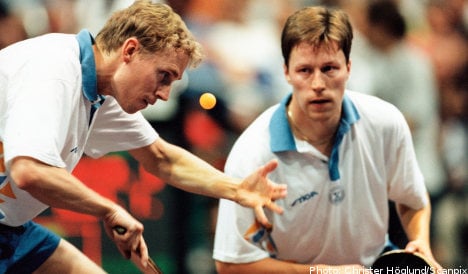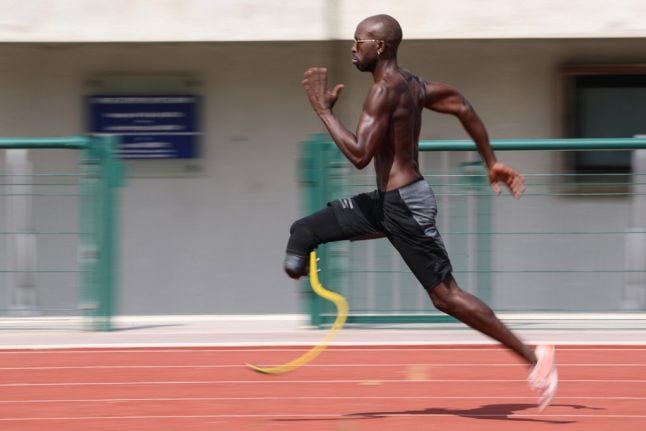The wire-slim Swede has played in all seven Olympics of which table tennis has been a part and began his last Games with a four games to one victory over Segun Toriola, the former Commonwealth champion from Nigeria.
“I was calm and confident, and this will be my last chance,” said a smiling Persson after his 11-8, 11-7, 12-10, 9-11, 11-5 win over an opponent who until recently had been the best player in Africa for an entire decade.
“The Chinese are very good but stopping them is not impossible. They have only two players in this event now (because of a rule change) and not three which will put more pressure on them.
“Timo Boll (the former world number one from Germany) can do it, and maybe Michael Maze (the former European champion from Denmark) can do it too.”
Asked if he could do it Persson hesitated, and then declined to rule it out, saying he still remembered the pain of losing in the semi-finals in both Beijing in 2008 and Sydney in 2000.
“I am feeling strong and I read the game better than I used to,” he said.
“And I think I am a more complete player than I was in Beijing. The game is much more powerful now than it was, so I have to be. And I am still in, so you never know.”
Persson’s game was also notable for being stronger on the backhand side than he was in his more forehand-dominated halcyon days.
This enabled him to be more economical when covering the court and multiplied his tactical options.
Happily for the veteran, there was little sign of the calf injury which seemed to have become a problem in training two weeks ago.
“He is one of the most dedicated players to his job,” said Ulf Carlsson, the Swedish coach.
“He is in many ways unique. He has adapted cleverly to the modern game which is heavier and quicker.”
But asked if the Chinese could be stopped, Carlsson seemed less sure.
“They will still be very difficult to beat, even with only two players,” he said. “But of course it is possible.”
Persson on Sunday plays Andrej Gacina, the world number 58 from Croatia.
Boll starts on Monday against an opponent yet to be decided, while Zhang Jike, the top-seeded world champion, and Wang Hao, the second seeded Olympic silver medallist also begin their bids.
The other two leading Chinese players, Ding Ning, top-seeded world number one, and Li Xiaoxia, the second-seeded former world number one, start in the third round of the women’s singles on Sunday.





 Please whitelist us to continue reading.
Please whitelist us to continue reading.
Member comments